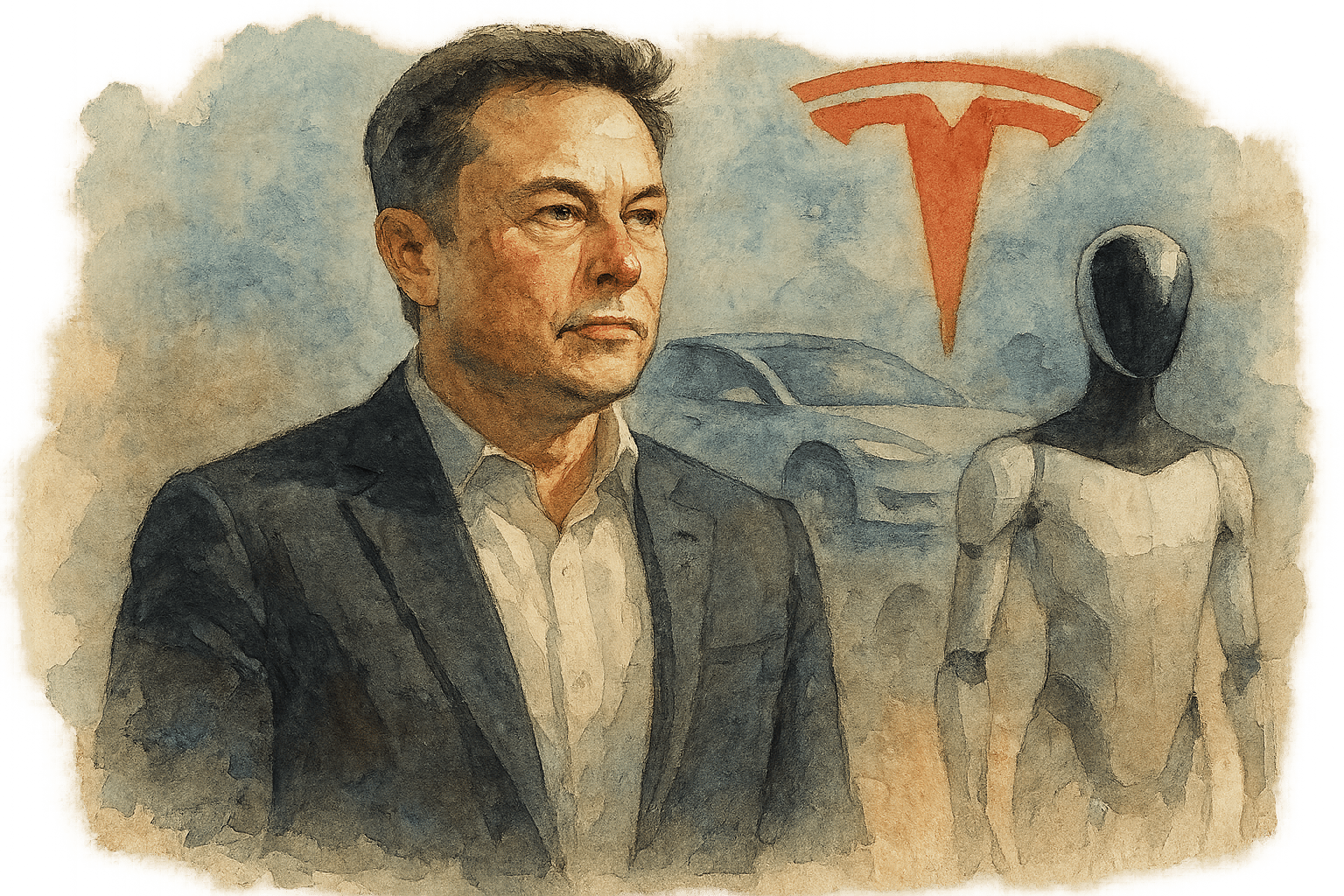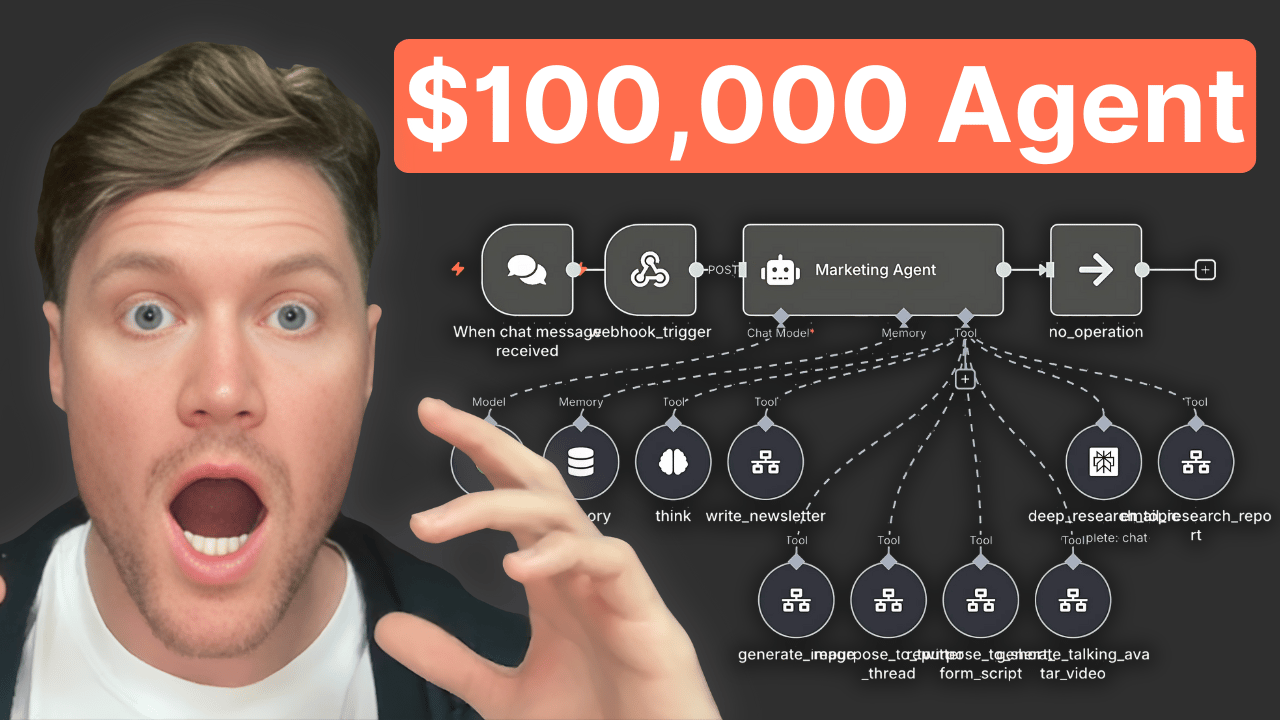- The Recap AI
- Posts
- Tesla's $29 billion play for AI talent
Tesla's $29 billion play for AI talent
PLUS: Perplexity's stealth scraping, Google's AI finds 20 security bugs, and AI's productivity paradox
Good morning, AI enthusiast.
Tesla has put a massive $29 billion price tag on keeping Elon Musk at the helm for its AI ambitions. The new pay package is designed to secure his leadership as the company doubles down on its pivot to AI and robotics.
This move underscores the extreme competition in the “AI talent war” and aims to secure the company's visionary leader. But is this historic payout the ultimate competitive advantage, or a high-stakes gamble on a single individual to define an entire industry's future?
In today’s AI recap:
Tesla's $29B package for AI talent
Perplexity accused of stealth scraping
Google's AI finds 20 security bugs
The AI productivity paradox for developers
7 trending AI Tools
Tesla's $29 Billion AI Bet

The Recap: Tesla's board has granted CEO Elon Musk a new $29 billion pay package to secure his leadership through the company's critical pivot to AI and robotics, citing the intense "AI talent war."
Unpacked:
The award follows Musk's prior public threat to develop AI elsewhere unless he gained more voting control, and this new package increases his stake from 13% to roughly 15%.
Unlike his previous performance-based package, this award is tied to a two-year commitment to a senior leadership role, plus a five-year holding period for the vested shares.
This is an interim award that will be forfeited if a Delaware court reinstates his original $56 billion package, which was previously voided over a "deeply flawed" approval process.
Bottom line: This move signals Tesla is betting its future on becoming an AI and robotics leader, not just a car company. The massive payout underscores the intensity of the AI talent war, where securing visionary leadership is considered the ultimate competitive advantage.
AI Tools of the Day
📞 BabelPhone - Break down language barriers by translating phone conversations in real-time as you speak.
📈 Reach - Predict your LinkedIn post's performance before you publish by running it through an AI simulation of your audience.
🤖 Cheat Layer - Build powerful, no-code business automations and autonomous agents using simple natural language commands.
🎨 LoraAI - Train custom AI models to generate images in a specific style, character, or concept that you define.
🏗️ Dagster - Orchestrate, test, and monitor complex data pipelines with a code-first platform built for developer productivity and reliability.
🕸️ Skrape - Instantly convert any website into clean, structured Markdown data ready for use in your AI and development projects.
💻 Refact AI - Supercharge your coding with a self-hostable AI assistant that offers fine-tuned model choices and works directly in your IDE.
Explore the Best AI Tools Directory to find tools that will 10x your output 📈
Presented By Syllaby.io
An Entire Month of Videos Before Lunch
Tired of the post-every-day grind?
Syllaby.io automates your entire content workflow. All you need is a topic—our AI does the rest.
✅ Get daily viral content ideas
✅ Auto-generate scripts tailored to your niche
✅ Instantly create faceless videos
✅ Bulk schedule across all your platforms
Syllaby is perfect for coaches, creators, and marketers who want to grow without showing their face or spending hours editing.
The AI Data Heist

The Recap: Cloudflare has publicly accused AI search startup Perplexity of deliberately using undeclared "stealth" crawlers to scrape content from websites that explicitly block them.
Unpacked:
Cloudflare claims that when its official web crawler is blocked, Perplexity deploys an undeclared crawler that impersonates a standard Google Chrome browser to access content.
The accusation is backed by tests where Perplexity successfully retrieved data from newly created, restricted domains, demonstrating its ability to continue scraping despite bypassing blocks.
This isn't the first time Perplexity has faced criticism over its data practices, following previous accusations of plagiarizing content from news outlets.
Bottom line: This clash highlights the growing tension between the AI industry's demand for data and publishers' right to control their content. Expect this to fuel the push for stronger, more transparent standards governing how AI models interact with the web.
AI Training
The Recap: We replaced our marketing team here at The Recap with this voice agent. It writes our daily newsletter, repurposes content for Twitter, writes short form video scripts for TikTok, and generates videos. In this video, we break down how to build an agent just like this for your own business or for your client's business.
(Or read the text version here)
P.S We also launched a free community for AI Builders looking to master the art and science of building AI Automations — Come join us!
Google's AI Bug Hunter

The Recap: Google's AI-powered bug hunter, Big Sleep, has successfully identified and reported its first 20 security flaws in popular open-source projects. The announcement marks a significant milestone for using AI to automate vulnerability discovery.
Unpacked:
The vulnerabilities were found in widely-used open-source software, including the FFmpeg multimedia library and ImageMagick image-editing suite.
While a human expert verifies the findings before they are reported, the AI agent discovered and reproduced each vulnerability without human intervention.
These findings are part of a new Reporting Transparency policy trial from Project Zero, which aims to shorten the time it takes for security fixes to reach users.
Bottom line: This demonstrates a new frontier in automated security, where AI agents can proactively identify flaws in the wild. It signals a future where AI significantly augments human experts, making the digital ecosystem safer at scale.
Where AI Experts Share Their Best Work
Join our Free AI Automation Community
Join our FREE community AI Automation Mastery — where entrepreneurs, AI builders, and AI agency owners share templates, solve problems together, and learn from each other's wins (and mistakes).
What makes our community different:
Real peer support from people building actual AI businesses
Complete access to download our automation library of battle-tested n8n templates
Collaborate and problem-solve with AI experts when you get stuck
Dive into our course materials, collaborate with experienced builders, and turn automation challenges into shared wins. Join here (completely free).
The AI Productivity Paradox

The Recap: Contrary to the hype, AI coding assistants may be making experienced developers less efficient. A groundbreaking study found that developers took longer to complete tasks with AI tools, pointing to a 'productivity paradox' where the promise of speed doesn't match reality, according to new research from METR.
Unpacked:
The study revealed a major disconnect between perception and reality: while developers using AI felt 20% faster, they actually took 19% longer to complete their tasks.
This isn't an isolated finding. The 2024 DORA report found that a 25% increase in AI adoption correlated with a 1.5% drop in delivery throughput and a 7.2% decrease in delivery stability for teams.
The slowdown appears to stem from increased cognitive load, as developers trade time spent writing code for time spent prompting, validating, and debugging AI-generated output.
Bottom line: Today's AI tools are less of a magic button and more of a trade-off, shifting effort from implementation to quality control. Achieving true productivity gains requires professionals to adapt their workflows and develop new skills for managing AI, not just adopt more tools.
The Shortlist
Apple formed a new in-house 'Answers' team to build a ChatGPT-like assistant, aiming to infuse its own large language model into Siri, Safari, and Spotlight as it moves to reduce reliance on outside partners.
OpenAI updated ChatGPT to better detect signs of mental distress and offer evidence-based resources, while also adding "take a break" reminders to promote healthy usage during long sessions.
Google introduced the Kaggle Game Arena, a new public platform where AI models will compete head-to-head in strategic games like chess, creating a verifiable and dynamic benchmark for their reasoning and planning capabilities.
What did you think of today's email?Before you go we’d love to know what you thought of today's newsletter. We read every single message to help improve The Recap experience. |
Signing off,
David, Lucas, Mitchell — The Recap editorial team



